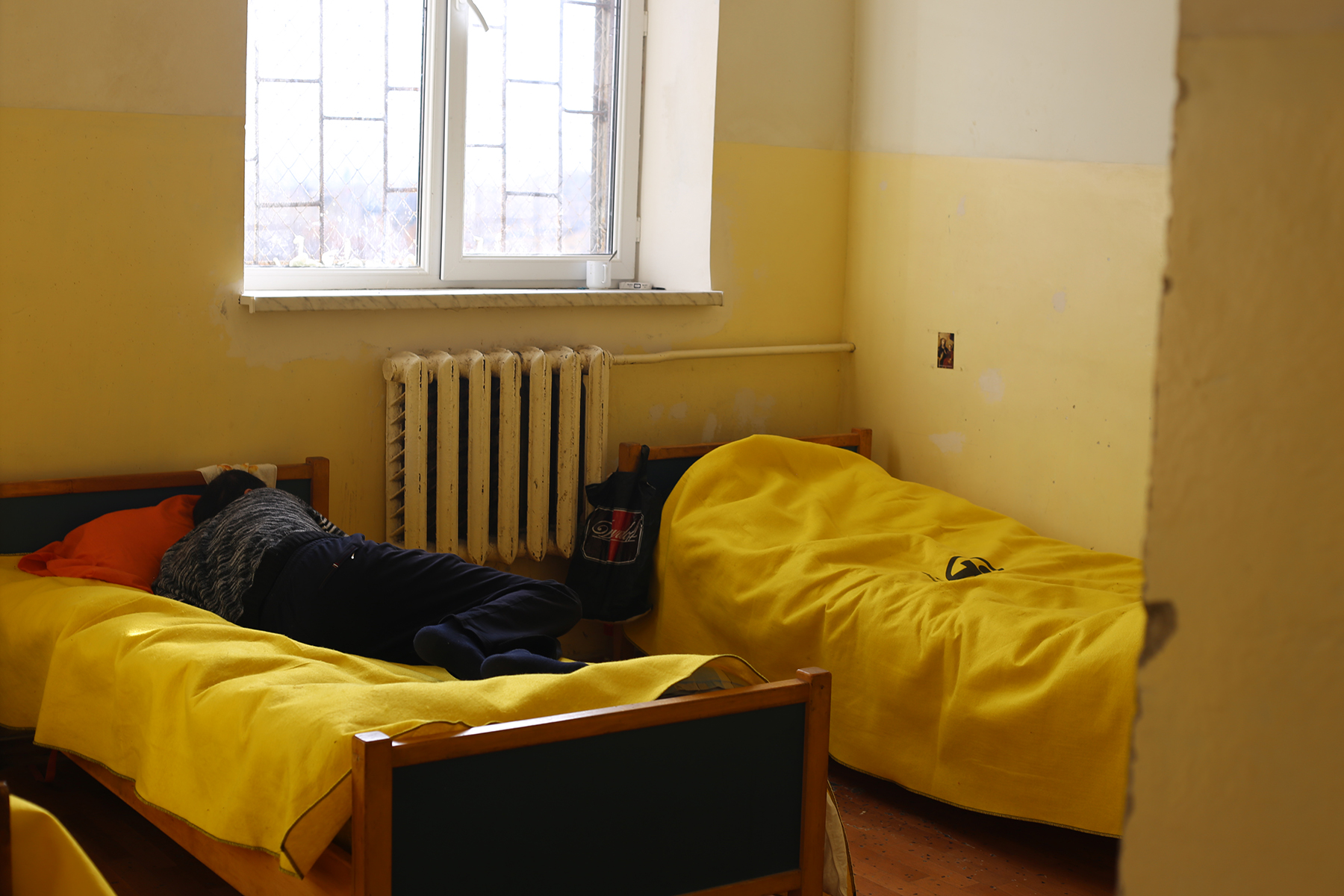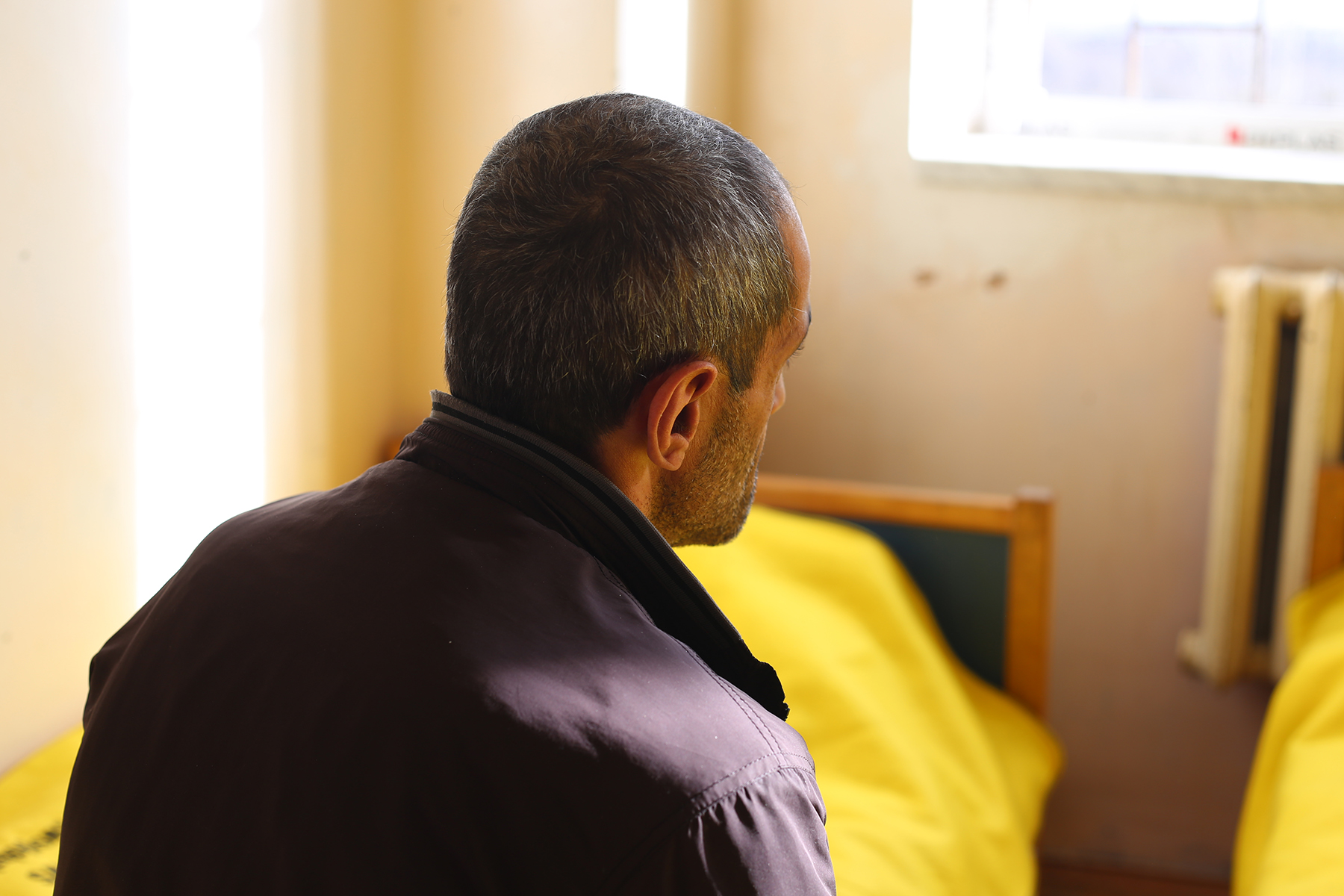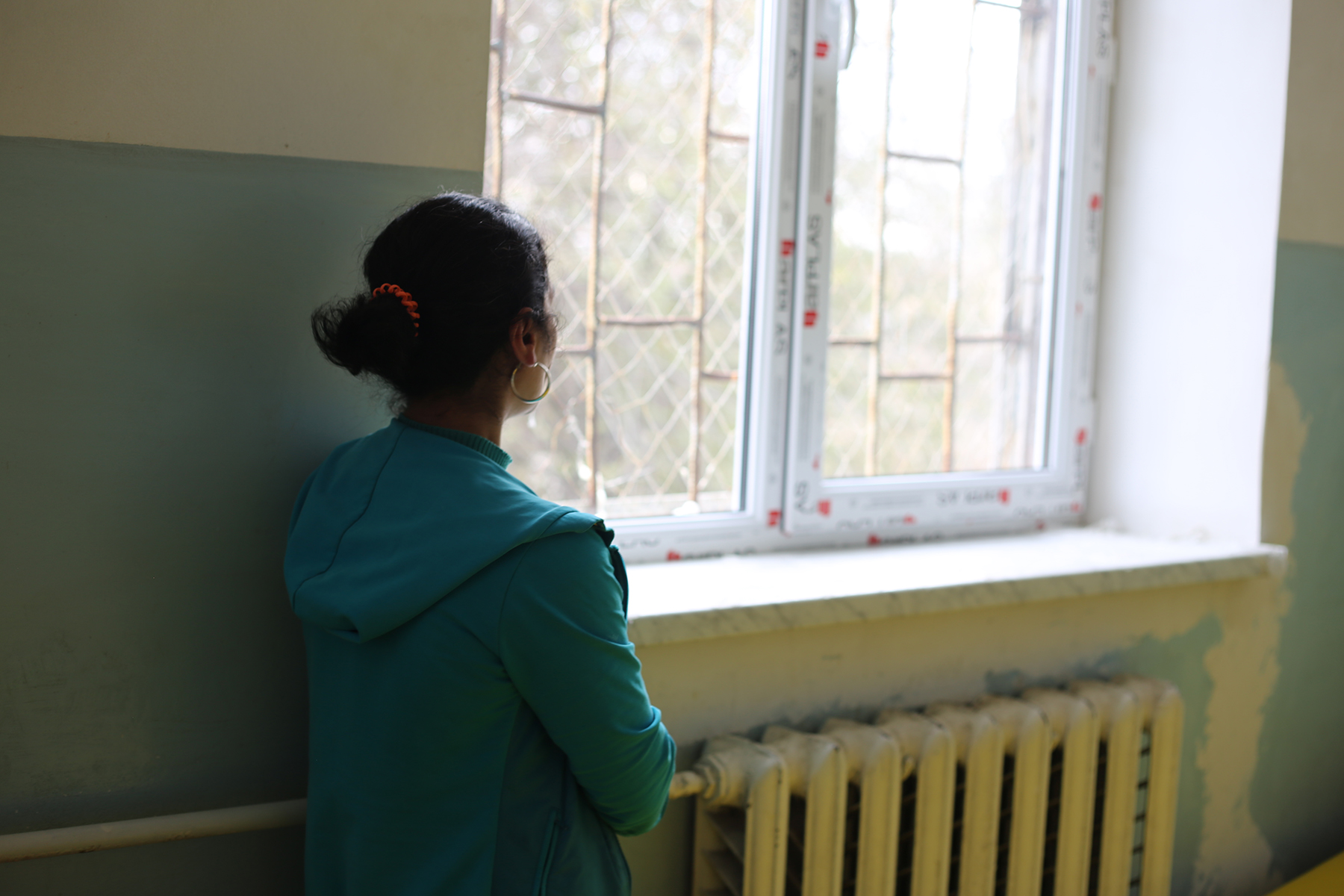

A recent report by the Human Rights Defender of Armenia suggested that instead of receiving the help they need, patients with psychiatric illnesses were often met with poor conditions and human rights violations in Armenia’s psychiatric institutions.
‘I lived in hell for one year. True, they didn’t beat me, they didn’t commit physical violence against me, but my soul was always in pain; I was psychologically tortured.’
Gayane (not her real name) spent a year as a patient in one of Armenia’s psychiatric hospitals. She says she doesn’t understand why her parents decided that she could no longer live at home but should move to a psychiatric unit.
‘I was locked up within four walls; there was a time when I didn’t even see sunlight’, Gayane says. ‘They tortured me like that. If I annoyed the staff, there were days when they let me go hungry; they gave me pig food. I struggled to persuade my mum to bring me home’, says Gayane.
Gayane’s mother says she considered the hospital to be a place where her daughter could receive an intensive course of treatment for her illness.
‘We noticed that Gayane displayed odd behaviour. There was a duality of personality’, she says. ‘She would shut herself for hours in her room, she would talk to the walls, or she would leave the building and knock on the neighbours’ doors to look for me when I had told her an hour before that I was going to work.’
‘We turned to a specialist. The diagnosis was painful — schizophrenia. At first, we decided that she would undergo treatment at home, but on the specialist’s advice we later moved her to a psychiatric hospital’, she says, adding that she came to this decision with great difficulty.
Gayane’s mother visited her daughter regularly during her year at the hospital. At first, she didn’t take Gayane seriously when she complained that she was being mistreated and humiliated, believing her illness had caused her to imagine it. But later, she says she realised that her daughter was telling the truth.
‘True, she was not always conscious of the situation, but [eventually] she was able to persuade me. We had to wait for a long treatment procedure before they considered the treatment phase completed in the hospital and gave me back my daughter.’
Despite what Gayane says, her mother believes she was subjected to physical violence at the hospital. ‘She doesn’t want to talk about this’, she says.
‘After we arrived home, she would hide her head in her hands every time somebody made a sudden movement — as if she was trying to protect herself.’
‘To this day, Gayane still gets frightened when, for example, she breaks a glass; suddenly she turns pale and looks at me horrified’, says Gayane’s mother.
Best practices are not always followed
Nadya Vardanyan, the director of the Gyumri Mental Health Centre, says that patients are only accepted at the hospital with a written application from the patient or their legal guardian which states that the person is willing to undergo hospital treatment and take psychiatric medication.
She says that if within 72 hours the patient does not consent voluntarily to being treated and the patient’s condition poses a danger to themselves or those around them, the hospital is obliged to refer the decision to the courts.

According to Armenia’s Ministry of Health, there are around 54,000 people with psychiatric illnesses in Armenia. Although all of them are under the supervision of a doctor, many do not wish to receive treatment in a psychiatric hospital: some prefer to conceal their health problems because of the stigma; others are simply terrified by the thought of living in an institution.
A 2018 report by the Human Rights Defender of Armenia on the rights of patients in psychiatric hospitals suggests these fears are not without basis. The 112-page report found that conditions in Armenia’s psychiatric hospitals were poor and that the human rights of patients were frequently violated.
The report was a result of a series of inspections of psychiatric institutions conducted by the Human Rights Defender in 2017. Inspectors discovered a number of violations, including patients being tied up and beaten.
They found that a number of institutions used drugs to restrain patients that were not sanctioned by the law. In most psychiatric institutions, inspectors said there were no separate rooms in which patients were restrained and so the process of restraining patients was done in front of the other patients.
The report also noted that expired drugs were discovered in the hospital pharmacies and in intervention rooms at the Nubarashen, Gyumri, Lori, and Vardenis psychiatric clinics. It said that there were no proper records of the drugs kept in the clinics.
In some cases, inspectors found that patients bought medicines from nearby pharmacies without supervision.
Dr Samvel Khudoyan, head of the department of applied psychology at the Armenian State Pedagogical University, insists that the practices adopted in Armenian psychiatric institutions are ‘not bad’.
Khudoyan has attended seminars abroad and visited psychiatric centres in order to compare the methods used in Armenian psychiatric hospitals with those used in other countries. ‘We follow the European experience; the best practices are adopted’, he says.

‘The problem is that these [practices] are violated from time to time. The condition of the hospital building is also very important, as even the walls can have an impact on a patient. We have a hospital where the walls remind one of a penal colony and the patient [therefore] has the impression that they are imprisoned’, says Khudoyan.
‘There are no beatings’
The director of the Gyumri Mental Health Centre, Nadya Vardanyan, agrees with Khudoyan. She says that they are trying to do the best they can with limited financial means.
‘Our building was not originally designed as a psychiatric hospital, that’s why there are some inconveniences: the rooms are small, the beds must be put side by side, but we never limit the freedom of our patients. They can come out of the building and go for a walk [in the hospital grounds]’, says Vardanyan.

The Gyumri Mental Health Centre was one of the institutions that came under fire in the Human Rights Defender’s report.
The report noted that the centre was overcrowded, that patients were only able to bathe every 10 days, that there was a lack of tables and chairs in the dining rooms, and that there were no phones.
‘I agree with some of the points’, says Vardanyan, responding to the report. ‘Yes, some time ago the building was overcrowded; we had more than 60 patients. But it is wrong to say, for example, that we don’t have proper furniture in the dining room.’
There are currently 42 patients at the Gyumri Mental Health Centre. The report also said that leather belts were used to physically restrain patients in the Gyumri centre and that patients were beaten.
‘We don’t use straitjackets’, says Vardanyan. ‘If we consider a patient to be out of control, we try to calm them down using medication. And there are no beatings.’
The report also said that an expired medication was found in the hospital. According to Vardanyan, however, their budget is so small that they could not afford to buy enough medication that a single pill would last long enough to expire.
In response to the Human Rights Defender’s extraordinary public report on psychiatric hospitals, the Ministry of Health ordered that repair works be carried out in a number of psychiatric institutions.
Beds, household goods, furniture, linen, hygiene products, along with proper physical restraints were purchased as well as other necessary supplies. A number of draft laws have also been developed related to the methods of psychiatric care employed and to services for people with recognised disorders, as well as cooperation with other organisations to help improve the situation.








